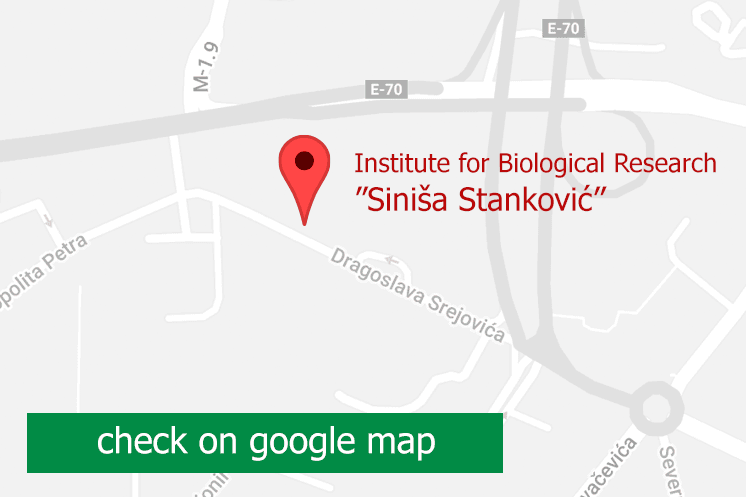
Dr. Irena Lavrnja
Principal Research Fellow
Dr. Irena Lavrnja
Irena Lavrnja, PhD, is currently a Principal Research Fellow at IBISS in the Department of Neurobiology. She graduated with a Bachelor's degree in Biology in 2000, defended her Master's thesis in 2003 and received her PhD in Neurobiology from the Faculty of Biology, University of Belgrade in 2008. During her career she held the following positions: Research Trainee (2001), Research Assistant (2003), Research Associate (2008), Senior Research Associate (2013), and since 2018 she is Principal Research Fellow at IBISS. Dr. Irena Lavrnja's research focuses on elucidating the cellular and molecular mechanisms underlying neuroinflammation, identifying potential targets and testing the efficacy of various therapeutic agents to suppress harmful and enhance beneficial inflammatory mechanisms. She utilises a variety of experimental approaches, including animal models of neuroinflammatory diseases such as experimental autoimmune encephalomyelitis and traumatic brain injury, in vitro cell culture systems, molecular and cellular biology techniques, and neuroimaging techniques. In 2010, she was awarded an STSM fellowship for postdoctoral studies by the European Commission (COST B30) at the Medical University of Innsbruck (Division of Neuroanatomy), Innsbruck, Austria, and in 2015 an EMBO short-term fellowship at the Karolinska Institute in Stockholm, Sweden. So far, she has been involved in solving 3 national projects and 2 international bilateral DAAD projects (German Knowledge Exchange Projects) and one project (Serbian Science and Diaspora Collaboration Programme: Knowledge Exchange Vouchers) funded by the Science Fund of the Republic of Serbia as Principal Investigator. Since 2018 she is a member of the Editorial Board of the journal ``Scientific Reports`` (Springer Nature Publishing AG), and since 2022 she is Review Editor for Frontiers in Cellular Neuroscience. She was supervisor of 2 PhD theses, both awarded as best PhD theses in physiology, and one Master thesis. As a committee member she was involved in 5 PhD theses and 2 Master theses.











